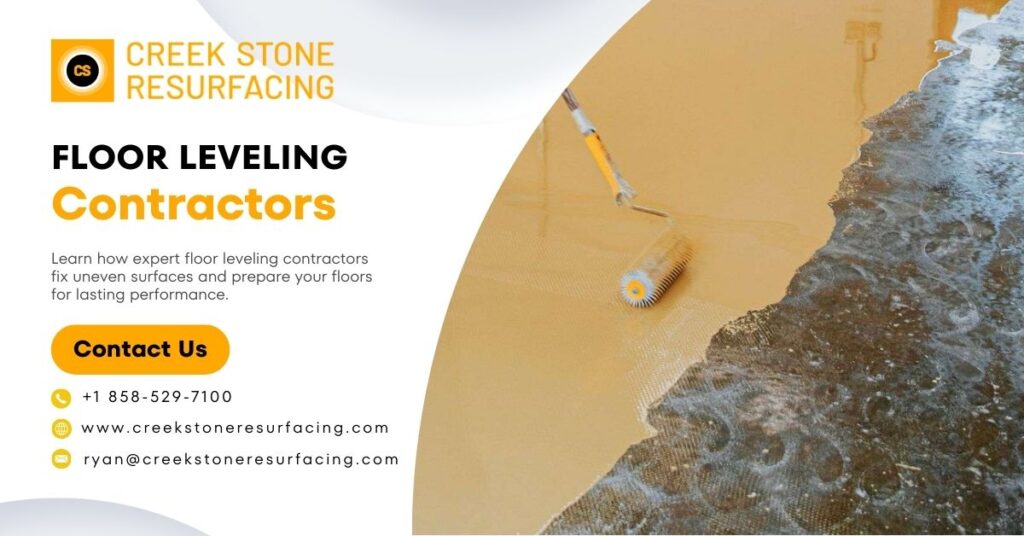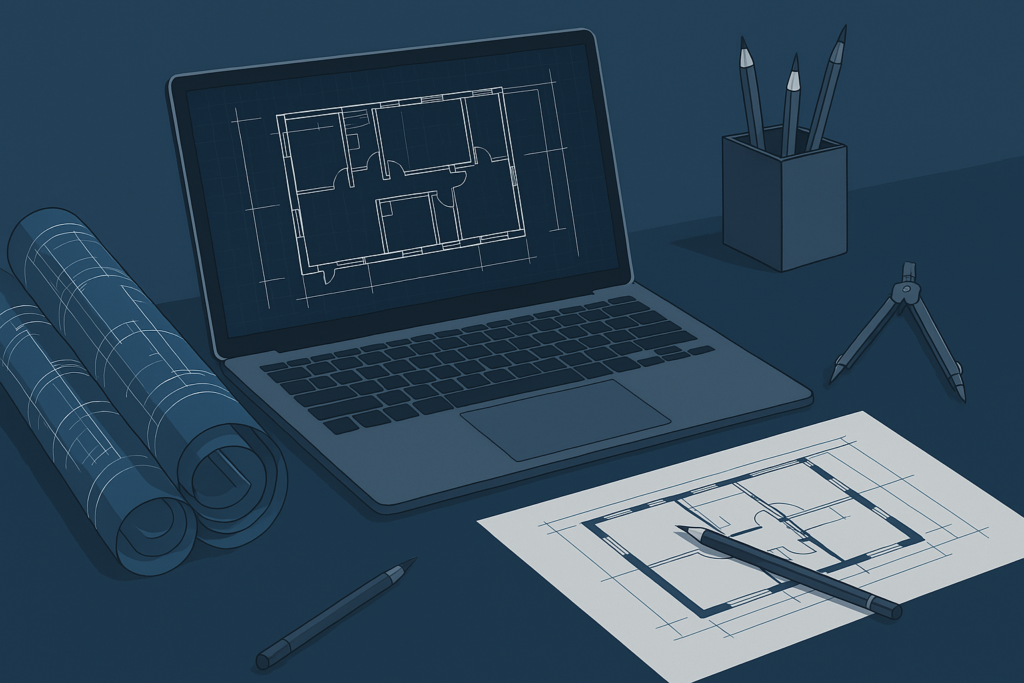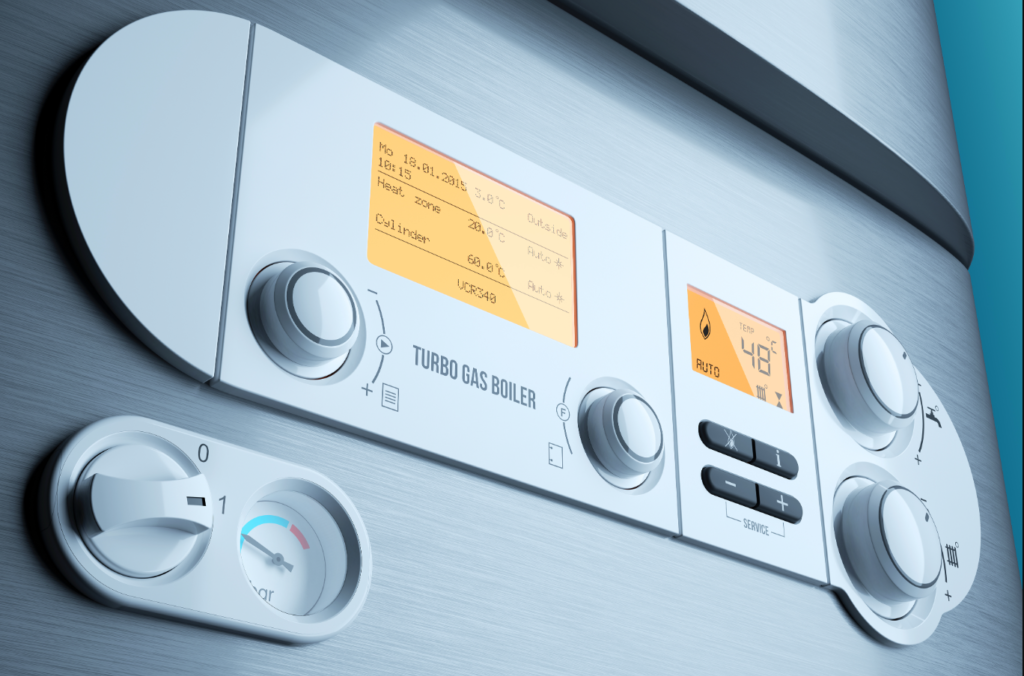Uneven or sloping floors can be more than just an eyesore; they can signal serious structural problems and lead to long-term damage in your home or commercial space. That’s where floor leveling contractors come in. These specialists play a critical role in ensuring that your floors are even, safe, and ready for new installations.
In this blog, we will cover what floor leveling contractors do, the techniques they use, when you might need one, and how to choose the right contractor for your project.
What Is Floor Leveling?
Floor leveling is the process of correcting an uneven surface so that it’s flat and level. Over time, floors can shift due to settling foundations, moisture issues, poor installation, or simply age. These imperfections can cause visible dips, slopes, or cracks in the flooring material, and they need to be addressed before installing new flooring.
Whether it’s a residential remodel or a commercial construction project, floor leveling is a crucial step in the building or renovation process.
What Do Floor Leveling Contractors Do?
Floor leveling contractors are professionals who specialize in identifying and correcting uneven floors. Their job includes:
- Inspection and Assessment: Using tools like laser levels and moisture meters, they assess the subfloor to determine where it’s uneven and why.
- Choosing the Right Leveling Method: Depending on the type of subfloor (concrete, wood, etc.) and the severity of the problem, contractors may choose from different leveling techniques.
- Applying Leveling Materials: Contractors use self-leveling compounds, concrete overlays, shims, or other materials to create a smooth, even surface.
- Repairing Structural Issues: In some cases, leveling contractors may also need to fix the underlying cause, such as moisture damage, rot, or foundation settling.
- Preparation for New Flooring: A leveled floor provides the perfect base for flooring installations.
Common Floor Leveling Techniques
Here are some common methods floor leveling contractors use:
- Self-Leveling Compound: A cement-based product poured over a floor to fill in low spots. It spreads evenly and hardens into a smooth, level surface.
- Grinding and Patching: For concrete floors, grinding down high spots and patching low ones is a standard technique.
- Mudjacking or Slabjacking: For sunken concrete slabs, polyurethane foam or slurry is injected underneath to raise the floor.
Each project requires a customized solution based on the floor’s condition, location, and future use.
Signs You Need a Floor Leveling Contractor
You may need to hire a professional if you notice any of the following:
- Sloping or dipping areas in your floor
- Cracks in tiles, grout, or floorboards
- Gaps between the floor and baseboards
- Uneven transitions between rooms
- Doors that no longer close properly
- New flooring that is not lying flat
Ignoring these issues can lead to more expensive repairs down the road. Uneven floors can damage new flooring materials, create trip hazards, and even signal structural problems with your home.
Benefits of Hiring Professional Floor Leveling Contractors
There are several advantages to hiring a professional instead of attempting a DIY fix:
- Expert Assessment: Contractors can identify the root cause of the problem — not just the symptoms.
- Proper Equipment: Professionals use industrial tools and materials not typically available to homeowners.
- Long-Lasting Results: Proper leveling ensures your new floor won’t crack, warp, or shift over time.
- Time and Cost Efficiency: Although hiring a contractor is an investment, it can save you from costly mistakes or rework.
How to Choose the Right Floor Leveling Contractor
When looking for a reliable floor leveling contractor near you, consider the following:
- Experience & Certification: Look for licensed contractors with experience in both residential and commercial projects.
- Customer Reviews: Check online reviews and testimonials on Google, Yelp, or other platforms.
- Free Estimate: A reputable contractor should offer a free inspection and a detailed quote.
- Warranty or Guarantee: Ask if they provide warranties for their work.
- Portfolio: Review past projects to ensure they have experience with your type of floor or structure.
Final Thoughts
A level floor isn’t just about aesthetics; it’s about safety, durability, and value. Whether you’re remodeling your home or preparing a commercial space for new flooring, hiring a floor leveling contractor is one of the smartest moves you can make.
By working with experienced professionals, you will ensure your floors are properly prepared for whatever comes next, saving you time, money, and stress in the long run.
Need help with floor leveling? Contact a trusted floor leveling contractor in San Diego today for a free consultation and ensure your flooring project starts on a solid foundation.



